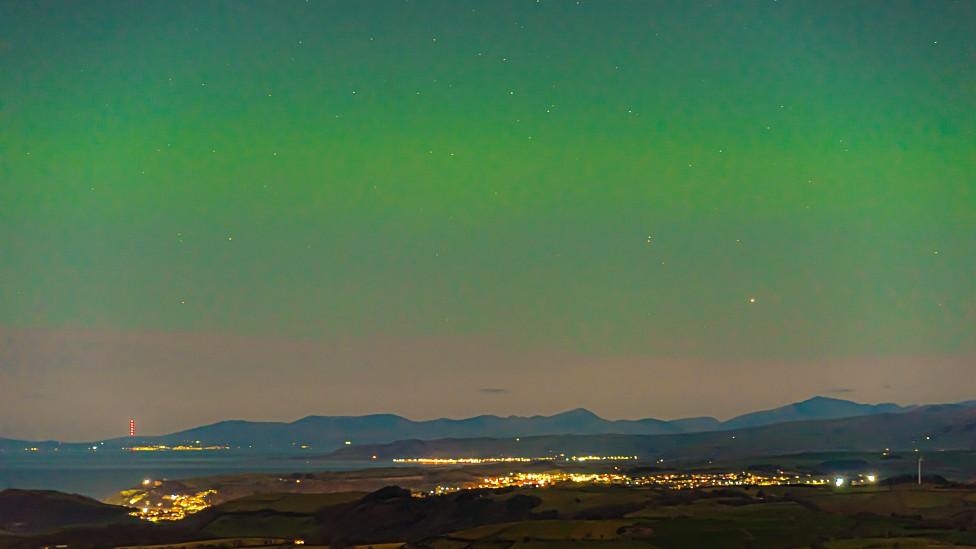Northern Lights illuminate the skies across Wales
- Published
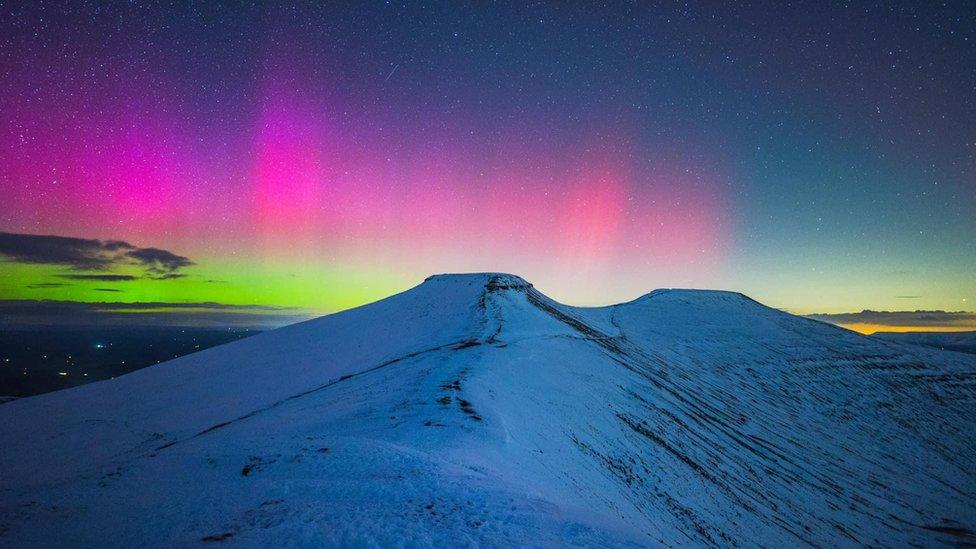
The Northern Lights were captured against the backdrop of Pen Y Fan and Corn Du by Cormac Downes
The skies above parts of Wales were lit up in a spectacular display of the Northern Lights on Sunday night.
The natural phenomenon was captured against the backdrop of a snow-covered Pen y Fan, the highest peak in Bannau Brycheiniog National Park.
Swansea, Powys, Gwynedd and Flintshire were also rewarded with views of the aurora.
The lights occur when charged particles from the sun hit gases in the Earth's atmosphere.
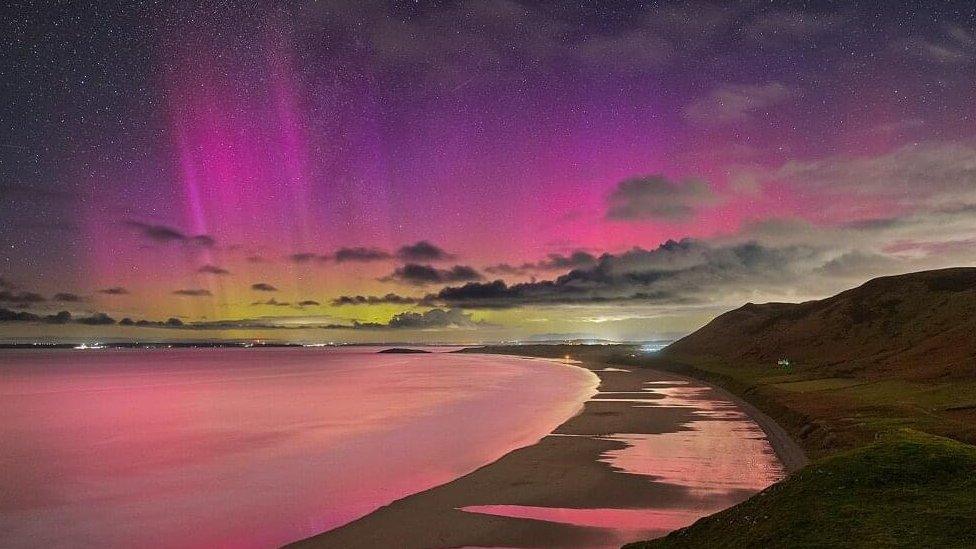
Dan Santillo photographed pink, yellow and green hues over Rhossili Bay
Mark Griffiths travelled from Crewe, Cheshire, to Talacre beach in Flintshire with 25 other Northern Light hunters.
He runs local group Cheshire Northern Light Hunters and helps people to see the aurora closer to home.
"It was a fab night," he said, describing it as the best display he had seen in the UK in years.
"I go to Iceland every month during the winter for aurora but last night was unreal," he added.
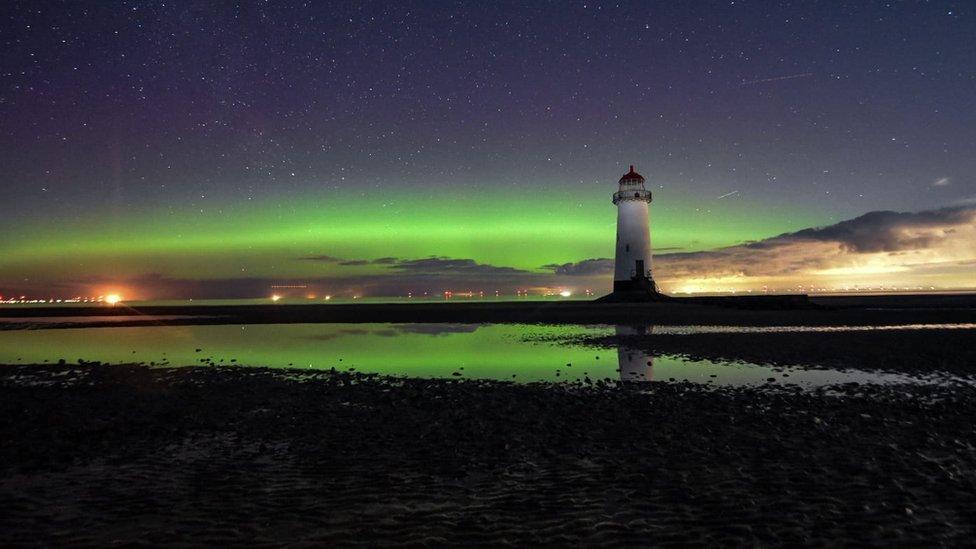
Green lights illuminated the skies above Talacre Lighthouse, Flintshire
The scientific name for the Northern Lights is Aurora Borealis.
According to the Met Office, the illuminations are most common during the Equinox in March and September, when the Earth is not tilted towards or away from the sun.

Analysis by BBC weather presenter Sue Charles
In the UK, we see the Aurora Borealis in Scotland, but we don't often see them as far south as Wales.
But it was largely dry and clear on Sunday night with light winds, particularly across north Wales - favourable conditions for catching the Northern Lights.
North Wales was also where it was coldest overnight.
Under clear skies, temperatures dropped to -3C in Hawarden, Flintshire.

Green is the most common colour, which occurs when the particles hit oxygen in the lower atmosphere. Red appears when the particles hit oxygen in the upper atmosphere, while blue or purple occur when nitrogen is involved.
Photographers who stayed up to see the spectacle shared their images with the BBC.
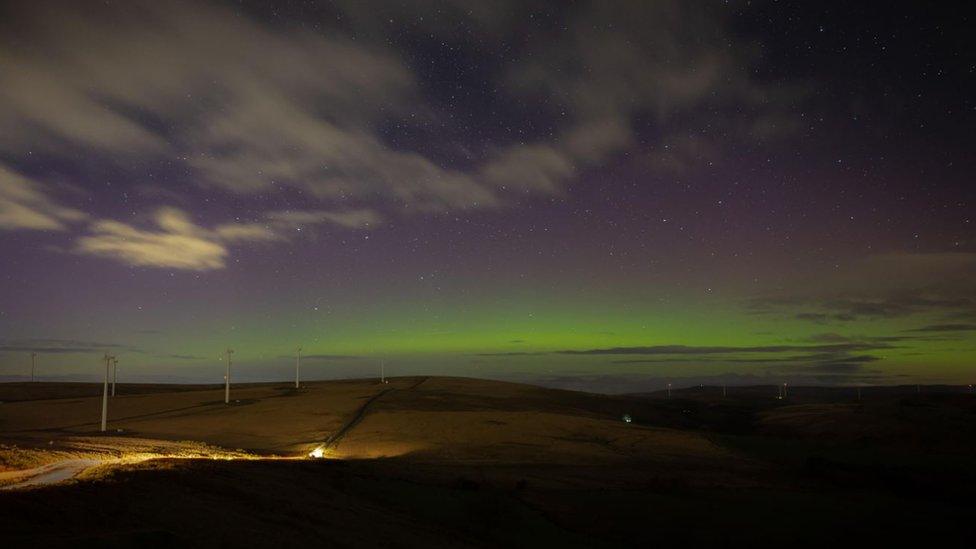
Clydach in Swansea was bathed in green and purple
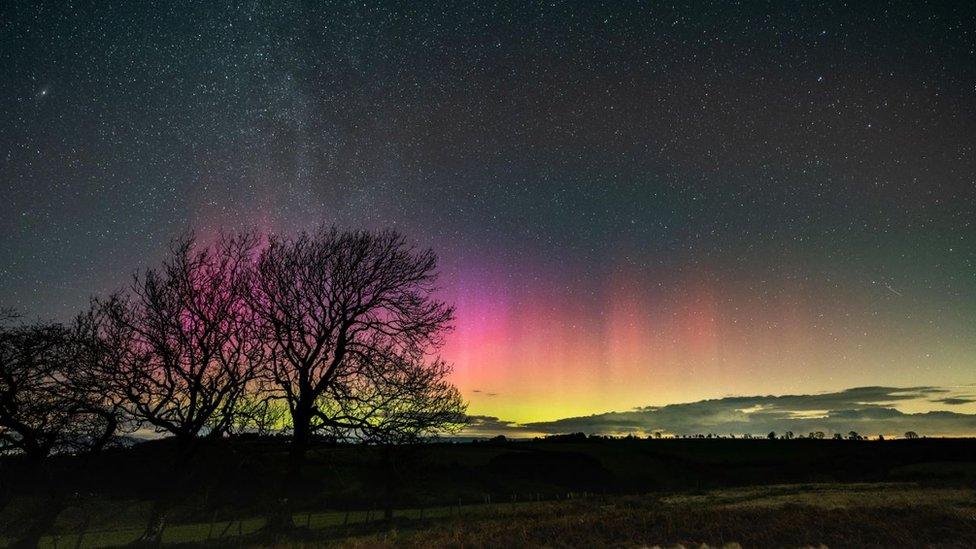
Richard Haynes captured this scene in Velindre, Powys
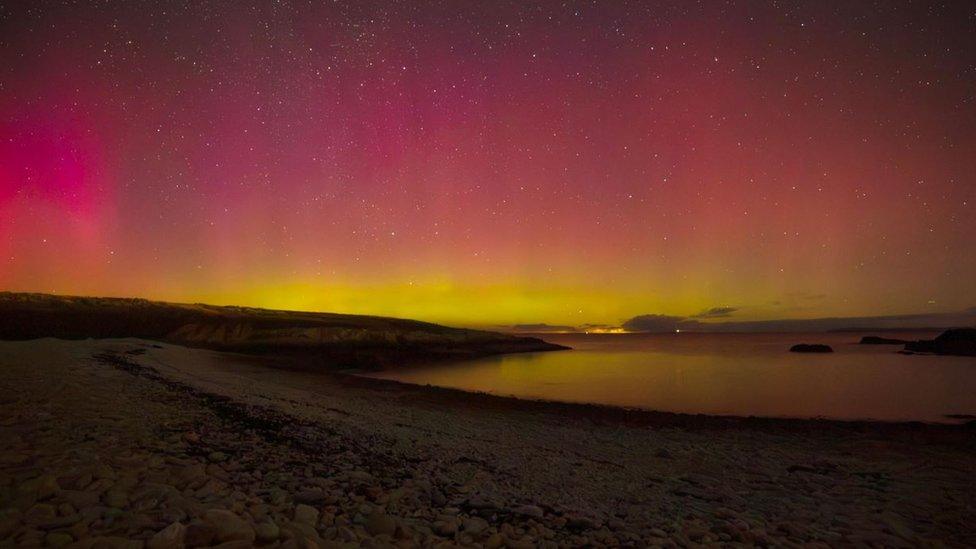
In Holyhead on Anglesey a yellow and pink glow was caught on camera

INSEPARABLE SISTERS: The seven-year-old conjoined twins who defied all odds
JUNE: VOICE OF A SILENT TWIN: The tragic story of June, her sister and their life in Broadmoor

Related topics
- Published2 January
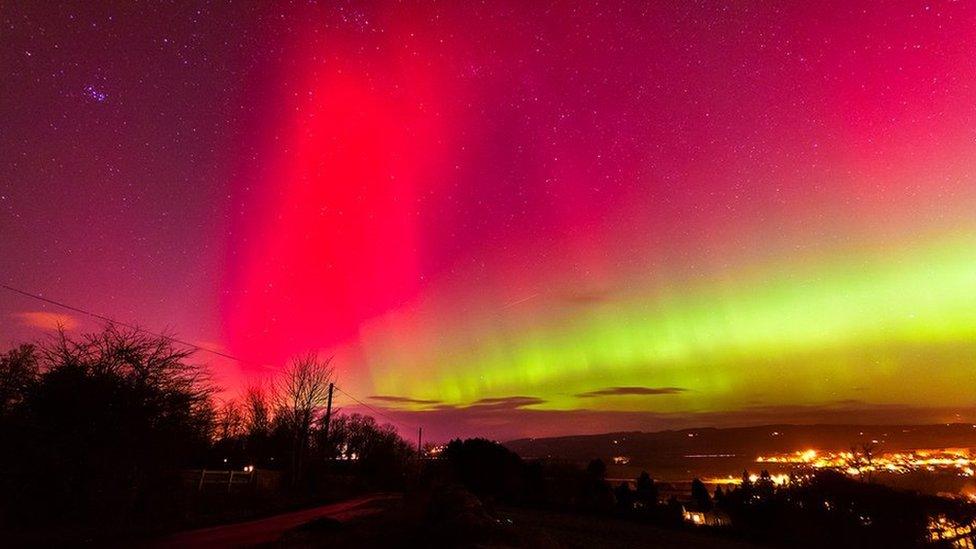
- Published11 January 2024
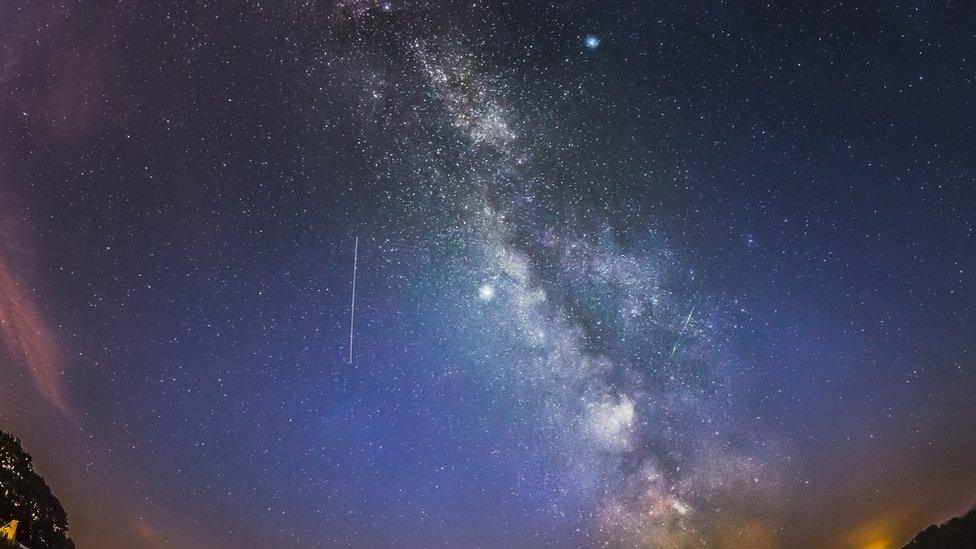
- Published24 March 2023
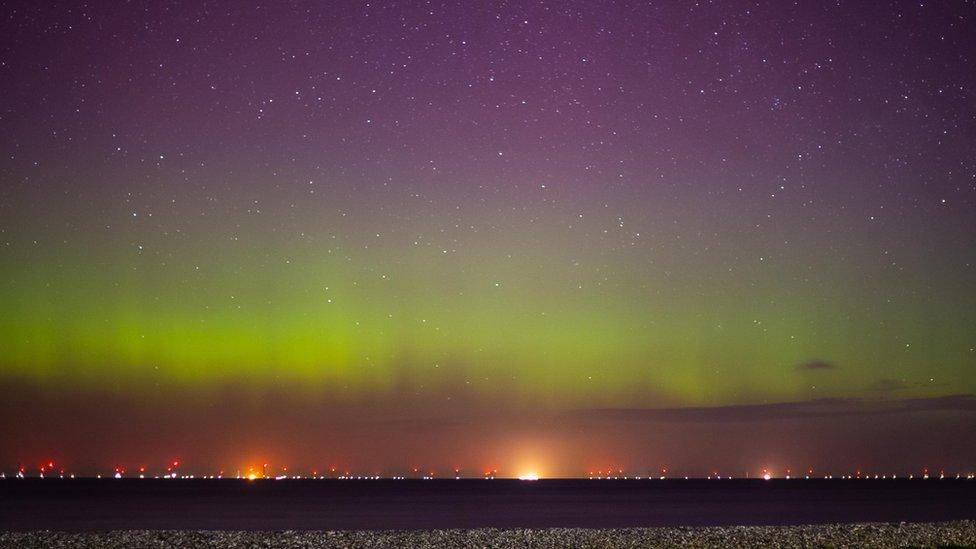
- Published22 January 2022
